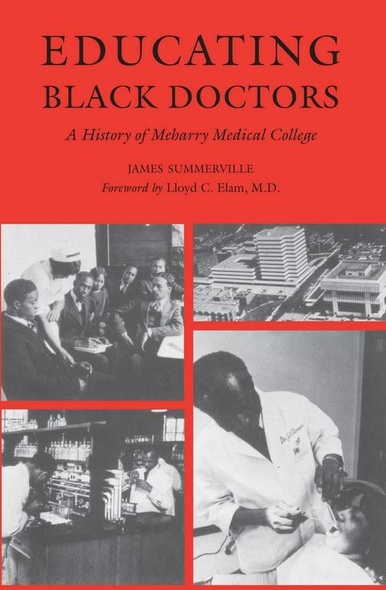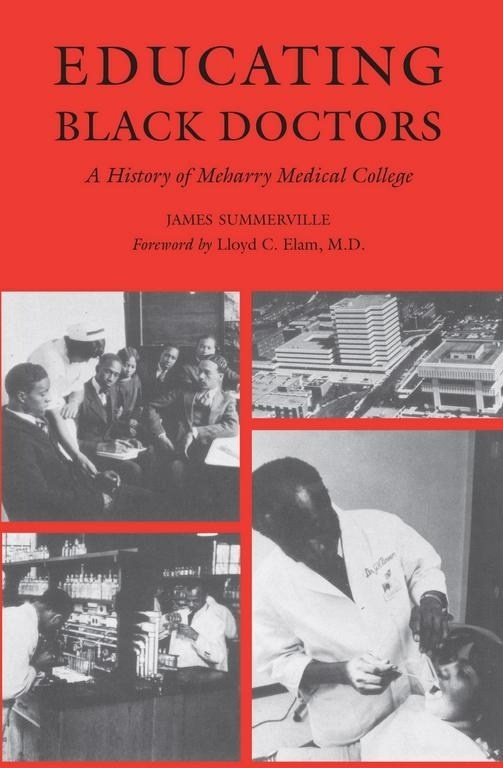Educating Black Doctors
A History of Meharry Medical College
University of Alabama Press
A journalistic, well-documented account of varying approaches to improving health for Black Americans
Fr one hundred years, Meharry has provided opportunity to thousands of Black Americans and some others, but the history of the institution is told, not by the changes in the futures of those fortunate men and women who became graduates, but by the action of a few in each generation with the vision to attack the vestiges of slavery, poverty, and excess morbidity through the building and operation of a medical college.
The college was conceived just after the Civil War when many thought the problem of the ex-slaves would soon disappear because their death rate was so great and the absence of health care was not a focus. The institution would be national, but its setting was a bankrupt city that had the fourth worst health statistics in the world. It was started by a missionary who had no money or medical experience at a time when there were more who objected to this work than applauded it. However, the desire of those students who begged that a medical school be started and the future of the many people who would be touched by its services were enough to motivate the founders to embark on this venture.
A number of documents have existed chronicling the events of the institution, but when requested by an academic society to provide one book that gave the most accurate history of the institution, I knew that no recent such book had been written. This book satisfies the need for such facts to be available. It also provides a journalistic, well-documented account of the varying approaches to providing opportunity and improving health for Black Americans.
Fr one hundred years, Meharry has provided opportunity to thousands of Black Americans and some others, but the history of the institution is told, not by the changes in the futures of those fortunate men and women who became graduates, but by the action of a few in each generation with the vision to attack the vestiges of slavery, poverty, and excess morbidity through the building and operation of a medical college.
The college was conceived just after the Civil War when many thought the problem of the ex-slaves would soon disappear because their death rate was so great and the absence of health care was not a focus. The institution would be national, but its setting was a bankrupt city that had the fourth worst health statistics in the world. It was started by a missionary who had no money or medical experience at a time when there were more who objected to this work than applauded it. However, the desire of those students who begged that a medical school be started and the future of the many people who would be touched by its services were enough to motivate the founders to embark on this venture.
A number of documents have existed chronicling the events of the institution, but when requested by an academic society to provide one book that gave the most accurate history of the institution, I knew that no recent such book had been written. This book satisfies the need for such facts to be available. It also provides a journalistic, well-documented account of the varying approaches to providing opportunity and improving health for Black Americans.
James Summerville is a former independent member of the Tennessee Senate for the 25th district. He is author of Nashville Medicine: A History.






